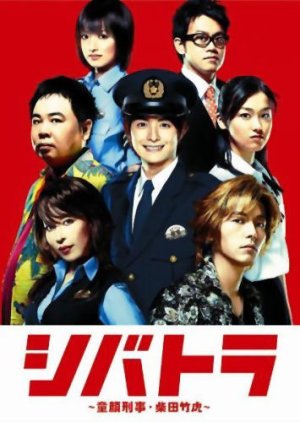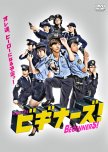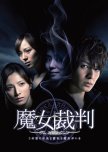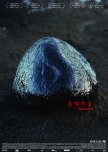To the average person on the street, Shibata Taketora looks like an unassuming teenager who's small and vulnerable enough for bullies to see as an easy target. But he's actually a police detective (not to mention a kendo expert) with a babyface he makes good use of, whether going undercover at a juvenile detention center or high school or just investigating crimes in his own way. Taketora has a supernatural ability to see the "hands of death" around people whose life is nearing the end, especially if they stay on the same course. It's a heavy weight for him, as he also has the gift of empathy and deeply cares about the people involved in his cases. Along with his offbeat group of friends, this unusual cop gets to the heart of the matter as he tackles his cases—and tries to save lives on the edge. Edit Translation
- English
- magyar / magyar nyelv
- dansk
- Norsk
- Native Title: シバトラ
- Also Known As: Babyfaced Detective Shibata Taketora
- Screenwriter: Muto Shogo
- Director: Ishikawa Junichi, Iwata Kazuyuki, Sato Yuichi
- Genres: Mystery, Comedy, Supernatural
Cast & Credits
- Koike Teppei Main Role
- Ohgo Suzuka Main Role
- Fujiki NaohitoFujiki Kojiro ["SABBATH SABBATH" store owner]Support Role
- Tsukaji MugaHakuto Shinsuke [Former hacker]Support Role
- Maya MikiChiba Sakura [Inspector]Support Role
- Miyagawa DaisukeShinjo Toru [Police officer]Support Role
Reviews

I only thought of watching this because of Koike Teppei,but after the first episode I was completely hooked, not just because of him, but because of the whole plot and the cast. I will definitely re-watch this again, and I highly recommend this to any one who love action, police stories and Koike Teppei.
All in all, Awesome!!

‘ Shibatora’; The Repetitive Drama That Enforces Every Trope…
Based on the manga series by Yuuma Ando, ‘ Shibatora’ ( alternatively known as ‘ Babyfaced Detective Taketora Shibata’ or ‘ シバトラ’) was adapted to the small screen by screenwriter Muto Shogo. Whilst Shogo’s screenplay was notably an amalgamation of angst-ridden topics and lighthearted comedy , the series did notably suffer greatly under the weight of pacing, character writing as well as plot-motivation also.
The series focused mainly upon main lead and recently promoted police detective Taketora Shibata ( Teppei Koike ). Forever being mistaken as a teenager due to his youthful appearance, Shibata finds himself being sent illicitly undercover by his new boss Sakura Chiba ( Miki Maya ) in order to resolve juvenile crime cases. However, Shibata hides a secret from his peers. Taketora Shibata possesses the ability to see the “ grim reaper’s hands”; an ominous sign surrounding individuals who are going to die within 24 hours. Alongside the help of his old friend and owner of alternative clothing store “SABBATH SABBATH” Fujiki Kojiro ( Fukiji Naohito), Kojiro’s employee Hakuto Shinsuke ( Tsukaji Muga) and previous case victim Hosho Mizuki ( Ohgo Suzuka), Taketora becomes determined to help save the young people involved in various crimes.
One of the most notable things to comment about the screenplay for ‘ Shibatora’ came through the parallel differences between the adapted TV series and ‘ Shibatora’’s original source material.
Of course as a standalone production in its own right, it is expected that ‘ Shibatora’ will take some different creative differences than the original manga. Indeed, Muto Shogo added particular focus on the darker subject matters of the series. However whilst Shogo did place some “edgier” undertones as the series progressed and the severity of crimes worsened, the impact and value of these events were somewhat inanely delivered also.
For those familiar with Teppei Koike’s works ( ‘ Gokusen 2’, ‘ Love Com’, ‘ Dragon Sakura’ and ‘ The Team Medical Dragon’ in particular), Koike’s zestful and sincere charm as main lead Taketora Shibata was well-suited and fairly convincing throughout the series. However, Koike’s costars notably brought forward a mixed-bag of acting talents. Whilst some of the supporting cast offering decent enough performances, other costars’ lack of acting experience and inconsistent line deliverances could be extremely questionable for viewers at the best of times .
Admittedly whilst the mixed-range of acting talents is a partial problem with the series’ untactful narrative, the screenwriting was one of ‘Shibatora’’s greatest pitfalls. Screenwriter Muto Shogo attempted to introduce a wide range of reoccurring characters and events from the original manga into the drama’s short timeframe. Whilst Shogo admittedly adapted the storyline in necessary parts such as combining the roles and backstories of certain characters in order to expedite plot points, this did notably give root to another problem; the storyline could often feel rushed.
The pacing of the series did present a double-edged sword; ideal for helping to present a fast-paced narrative rather than tediously dragging out events, but rarely presenting golden-opportunities to explore characters or solve weaker plot problems also.
For example, there’s the poorly-explained “ fantasy” elements surrounding Taketora’s supernatural ability throughout the series. Whilst admittedly this is a pitfall carried through from the original manga, Shogo seemed to particularly present this element of the series with lacking focus or depth; necessary as a quick plot asset, but rarely offering opportunities to explore Taketora’s backstory with more tact.
In fact Shogo’s tackling of the main lead’s backstory in the series was often poorly induced throughout the events of the storyline. Initially brought up as a seeming quintessential plot point, Taketora’s backstory is quickly passed off in passing dialogue by Kojiro ( an out of character writing decision also) instead. Perhaps if the series had foreshadowed or built upon the importance of Taketora’s backstory ( especially with all regards to the future events and the final “ antagonist”), then perhaps the ending of ‘ Shibatora’ could’ve been less anticlimactic and certainly fleshed-out with more depth.
Indeed this seemed to be reoccurring problem with ‘ Shibatora’. Even seemingly intriguing main characters such as Sakura Chiba’s personal vendetta for becoming involved in juvenile crime cases ( only mentioned several times), or the backstory and feelings of the supporting cast were rarely discussed or brought up in the storyline’s narrative also.
Instead the series’ eleven episodes notably became trapped in the pitfall of similar storyline formats. It became evident that each episode soon followed a pattern generic exposition, the possible case coming to light , a sudden revelation,the climax and then a final resolution. Whilst it is not of the question for a series to follow this basic structure when revolving around shared storylines, the lacking variation and ability to diverge away from previous episodes presented a somewhat repetitive and slightly tiresome formula for viewers.
Even in retrospect for a late 2000s drama, the cinematography under the directing reigns of Ishikawa Junichi and Iwata Kazuyuki was admittedly slightly worse for wear in parts . The somewhat sloppy cuts, editing and fuzzy long distance shots could sometimes unintentionally divert the attention of viewers away from necessary scenes and storyline. Nevertheless whilst the directors did sometimes struggle with delivering an impact throughout their field of vision behind the camera, they were able to present some brilliant moments of scenes and choreography also.
The OST of ‘ Shibatora’ arguably remained one of the greatest virtues of the drama. Admittedly, there were certainly tracks in the series which lacked a greater impact than others, but, the chosen instrumentals did often help to convey the emotional tones and themes of the storyline when plot could sometimes be greatly absent.
Whilst ‘ Shinatora’ admittedly covered darker subject areas and presented some adrenal-infused plot moments, the storyline was often weakened greatly by rushed pacing, questionable acting, lacking character depth as well as repetitive plot points. Perhaps whilst the blasting scores could often make up for storyline flukes by exploring the emotions of the characters, the lacking scope of character depth and backstory rarely allowed this to become a symbiotic asset. Perhaps for those looking for a quick and easy binge-watch then ‘ Shibatora’ is an ideal viewing experience. However for those wishing to indulge in an avant-garde, well-written and memorable detective and crime drama , then ‘ Shibatora’ is certainly not it.


















































